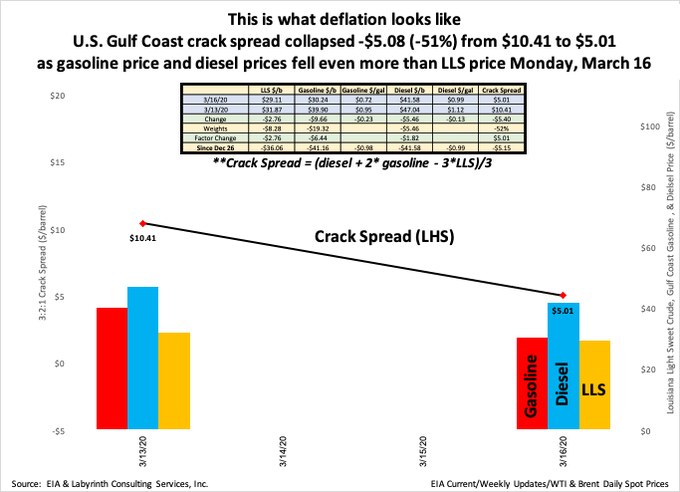By Wayne Christian, Chairman of the Railroad Commission of Texas
March 20 2020
As Saudi Arabia and Russia flood the international energy market with a glut of crude oil, prices have dropped to unsustainable levels that threaten the future of the Texas oil and gas industry, its associated benefits to the state economy, and American energy dominance.
The United States recently became the largest producer of oil and natural gas in the world, producing a record 12.4 million barrels in August 2019. Texas is responsible for about 40% of this production. The industry directly employs more than 361,271 Texans and exceeded $116 billion in taxes and royalty payments over the last decade, including a record $16.3 billion in 2019.
None of this is temporary, as the U.S. Geologic Survey assessed a recent oil discovery in the West Texas to be 46 billion barrels of oil. RS Energy Group estimates this find could actually be as large as 230 billion barrels. This is the largest oil find in the history of the world. To put this in perspective, proven reserves in the U.S. from Alaska to Brownsville were estimated to be 36.4 billion barrels in 2014.
In order to stabilize markets, a few oil and gas producers have suggested that the Railroad Commission of Texas resume prorating the production of oil.
“I am very concerned about the impact the international oil market instability has on the Texas economy, state budget, and the hundreds of thousands of Texans who rely on the oil and gas industry for a paycheck,” said RRC Chairman Wayne Christian. “A couple of operators have suggested pro-rationing oil as a solution. While I am open to any and all ideas to protect the Texas Miracle, as a free-market conservative I have a number of reservations about this approach.”
“First, Texas does not operate in a vacuum. If we prorate our oil, there is no guarantee other nations, or even states will follow suit,” continued Christian. “From a practical standpoint, the Railroad Commission has not prorated oil in over forty years; we do not have staff at the agency with experience in this process and our IT capabilities to handle this process are limited at best.”
Earlier this morning, Chairman Christian had a conference call with the Department of Energy (DOE) to discuss what the United States can do to stabilize the oil market. On the call, the DOE asked Christian to notify Texas operators that they have initiated an initial solicitation for 30 million barrels to begin filling the Strategic Petroleum Reserve (SPR).
Christian instructed staff to put out a notice to operators to ensure the Texas industry is aware of this opportunity. You can read the notice to operators on the RRC website at https://rrc.texas.gov/media/56836/nto_chairmanchristian_og.pdf.

